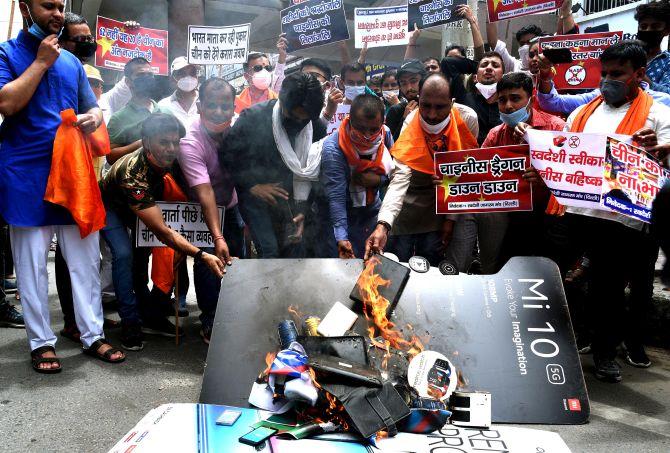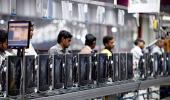We are looking at bringing quality control orders for mass production items such as smart meters and ceiling fans. This will benefit our own industry and consumers, a government official said.

The commerce and industry ministry will soon issue quality control orders (QCOs) to check imports of electric fans and smart meters -- especially from China -- after successfully reining in toy imports through stringent quality checks.
“We are looking at bringing QCOs for mass production items such as smart meters and ceiling fans. This will benefit our own industry and consumers,” a government official said.
In FY22, India’s import of ceiling fans jumped 132 per cent to an estimated $6.22 million. Of this, import from China was worth $5.99 million. Import of electricity smart meters was worth $3.1 million during FY22 with about $1.32 million coming from China.
After the quality control order was issued in 2020, toy imports dropped 70 per cent in the last three years, from $371 million in FY19 to $110 million in FY22. During the same period, imports of toys from China dropped 80 per cent o $59 million.
Widening trade deficit with China has been a cause for concern, prompting India to take measures to curb non-essential imports from its northern neighbour. During the April-September period of FY23, exports to China contracted 36.2 per cent to $7.8 billion while imports rose 23.6 per cent to $52.4 billion, leading to a record trade deficit of $44.6 billion.
The official industry department is also examining the standards across all products in which domestic industry has the capacity. “Wherever product manuals, standardisation processes and testing laboratories are available, we are trying to introduce QCOs. That’s a huge exercise that we are undertaking,” the official said.
However, the official rued that domestic industry is not always supportive of quality controls.
“Unfortunately, the problem in India today is that the moment you want to put standards through QCOs, the domestic industry opposes because it has not focused on quality. The problem is that we don’t develop our own technology,” he said.
Since the pandemic, the government started to impose quality controls to curb non-essential imports and provide support to the domestic industry for more capacity.
The industry department has notified about 20 QCOs since 2020. This is a contrast to about 18 to 19 QCOs in the previous two decades -- between 2000 and 2019.
Starting 2020, BIS notified QCOs for steel and iron products; chemicals, fertilisers, polymers and textiles; air conditioners; plugs and sockets; domestic gas stoves; transparent float glass; pressure cooker, cables, aluminium foil, toys, copier paper, cattle feeds, footwear, helmets, sewing machine among others.
Speaking at an industry event in September, trade minister Piyush Goyal said even the poorest citizen deserves the best quality products and the culture of no compromise with quality has to be adopted.
While BIS certification scheme is basically voluntary in nature, for a number of products compliance to Indian standards is made compulsory by the central government under various considerations such as public interest, protection of human, animal or plant health, safety of environment, prevention of unfair trade practices and national security. For such products, various line ministries in the central government direct mandatory use of standard mark under a licence or certificate of conformity (CoC) from BIS through issuance of QCOs. The central government, after consulting BIS as well as stakeholders, publishes those QCOs.
The QCOs would also automatically apply for imports of the notified products and the manufacturer in foreign country will be required to obtain a licence or CoC from BIS which acts as the enforcement authority under the Foreign Manufacturers Certification Scheme (FMCS).












 © 2025
© 2025